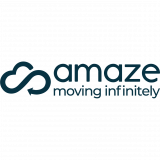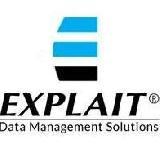What our clients say
-

"¡Gracias a todos por el buen trabajo!
He estado usando la versión gratuita de su servicio DNS durante aproximadamente 4 años y no ha habido tiempo de inactividad ...Iskren Slavov
Founder/Full Stack Developer @ Wish Development Ltd
-

"Como agencia web, ofrecemos a nuestros clientes alojamiento compartido y queremos garantizarles que incluso si nuestro servidor experimenta algún problema, sus servicios separados se mantendrán en funcionamiento. Es por eso que recurrí a ClouDNS ...
Grigor Yosifov
CEO @ Forci Web Consulting Ltd
-

"El mejor servicio, hermoso panel de control, 100% de tiempo de actividad y bajo costo".
Vadim Mikheev
-

"Working with the team at ClouDNS has been very supportive. My experience has been excellent. The team is attentive, knowledgeable and skilled when it comes to Cloud DNS, and I can recommend their professionalism."
J. May
Marketing Chief @ Amaze Communication
-

"He estado usando ClouDNS desde 2014, y debo decir que son realmente sorprendentes. El servicio que me han brindado a mí y a mis clientes ha sido insuperable. Ofrecen servicios de muy buen valor, especialmente las suscripciones DDoS ...
Daniel Ives
CEO @ Ives Network t/a Daniel Ives
-

"Outstanding Service. I'm using ClouDNS since 2015 for personal domains. In 2018 moved the domains of the company were i work and we use your services since then. Would never though to go back!!!..."
Stanislav Filavtev
-

"Estoy muy contento con su empresa. Usted es realmente el MEJOR proveedor de DNS en Internet. Su atención al cliente, precios y funciones son de primera categoría".
Christopher Nofal
Manager @ DreamLab LLC
-

"ClouDNS provides the best in class DNS services. Prior to ClouDNS we were hosting and managing our DNS servers which was not core to our business so when we compared alternatives ClouDNS was the right fit..."
James Aker
President at Explait @ EXPLAIT, LLC
-

"Solo puedo recomendar el servicio aquí.
Acerca del alojamiento y control:
- Gran cantidad de posibilidades en cada parte que necesita (DNS, SSL, etc.) ...Patrick Jud
-

"Su servicio de atención al cliente está en lo más alto de mi lista, ¡sigan con el buen trabajo!"
Sami Sälö
Chairman of the Board @ Salskea Oy
-

"Got frustrated with the lack of knowledgeable support at GoDaddy, searched for alternate DNS providers and found ClouDNS. Could. Not. Be. Happier..."
Phillip McMahon
-

"Gracias por la oportunidad de pagar por los servicios en Bitcoins. Es muy importante para sus clientes de Ucrania en un momento en que el sistema bancario de Ucrania ahora está destruido".
Mikhail Chutowski
-

"ClouDNS es increíble, lo he estado usando durante un tiempo y funciona de maravilla. Quiero agradecerle por su fantástica solución para los servicios de DNS".
Helinton Dias
@ CloudExperts Consultoria
"Soporte amable, buena comunicación, excelente servicio, excelente precio.
No podría pedir nada más ".
Steven Pearson